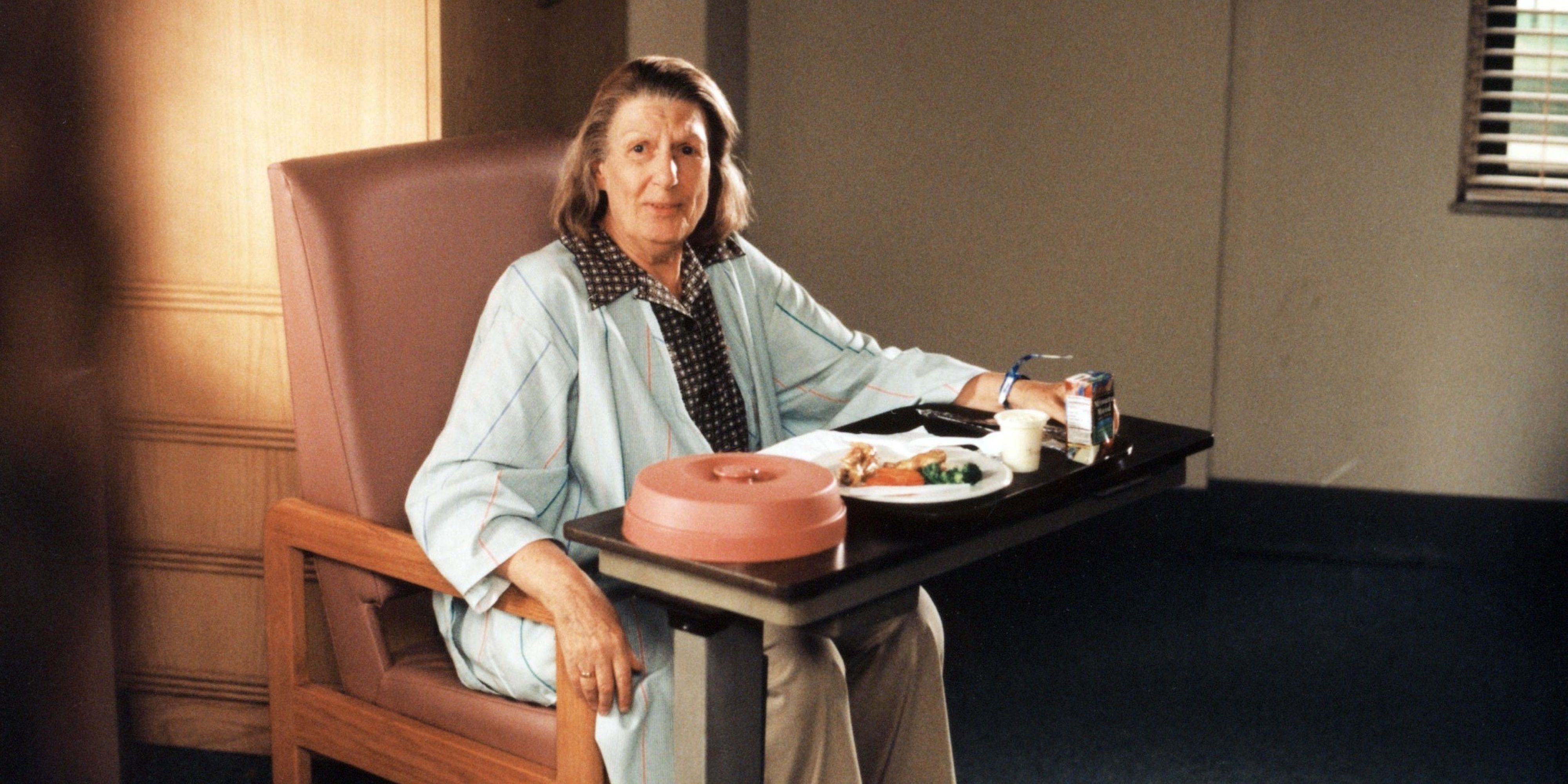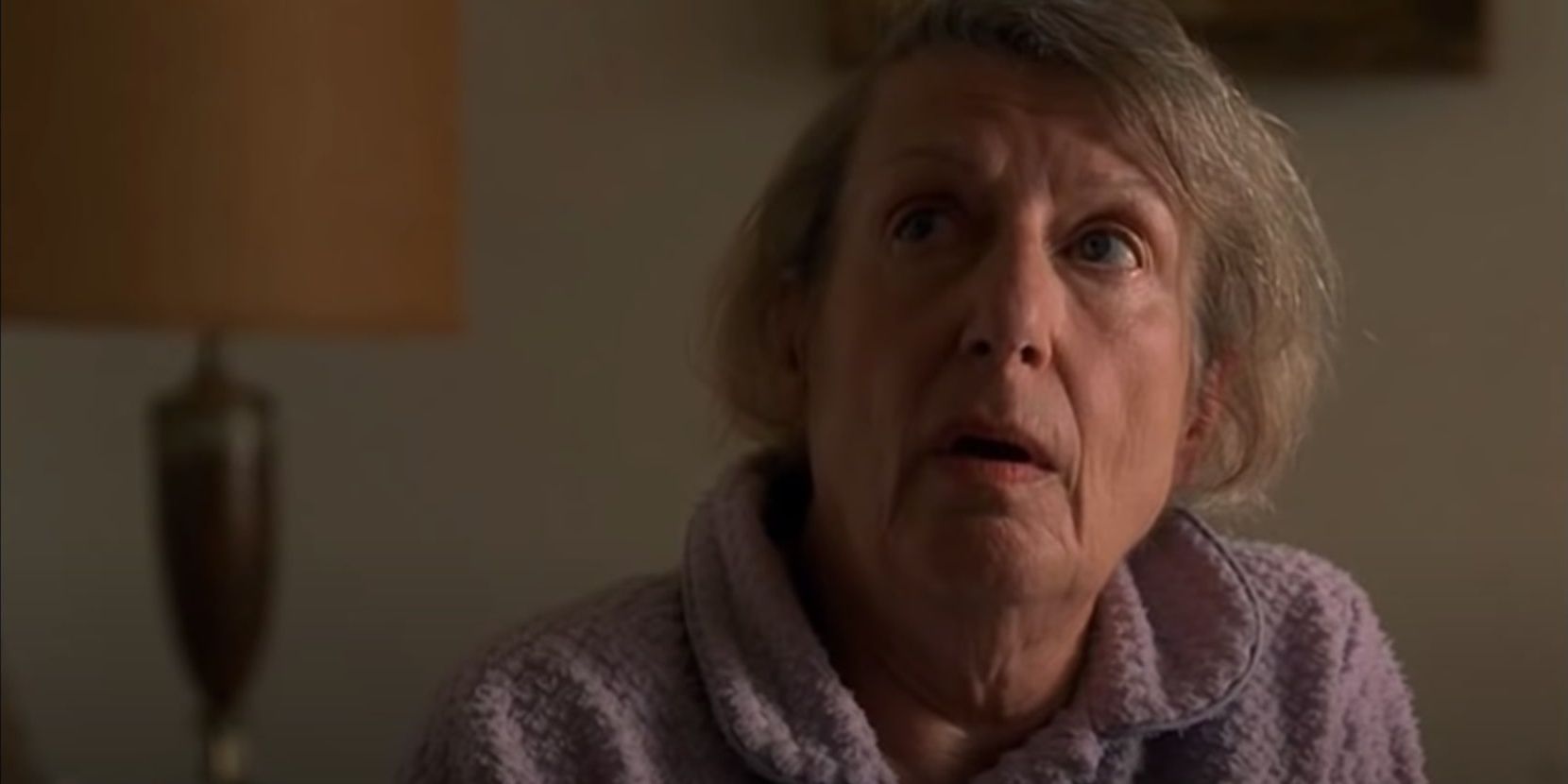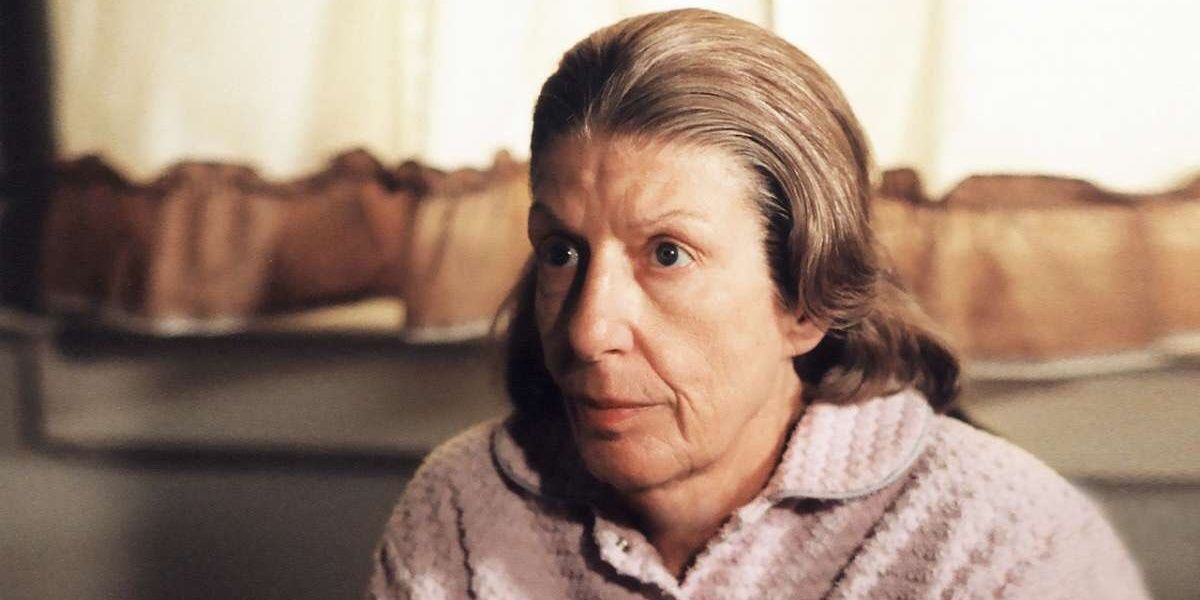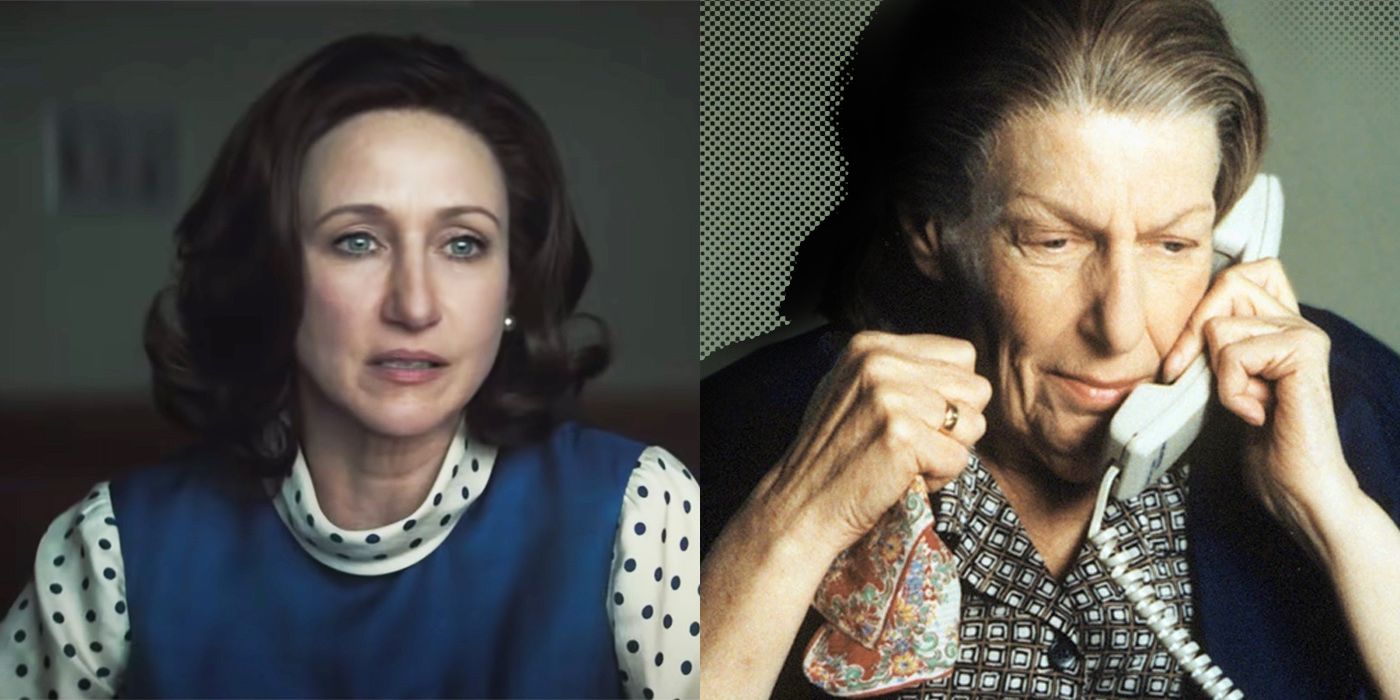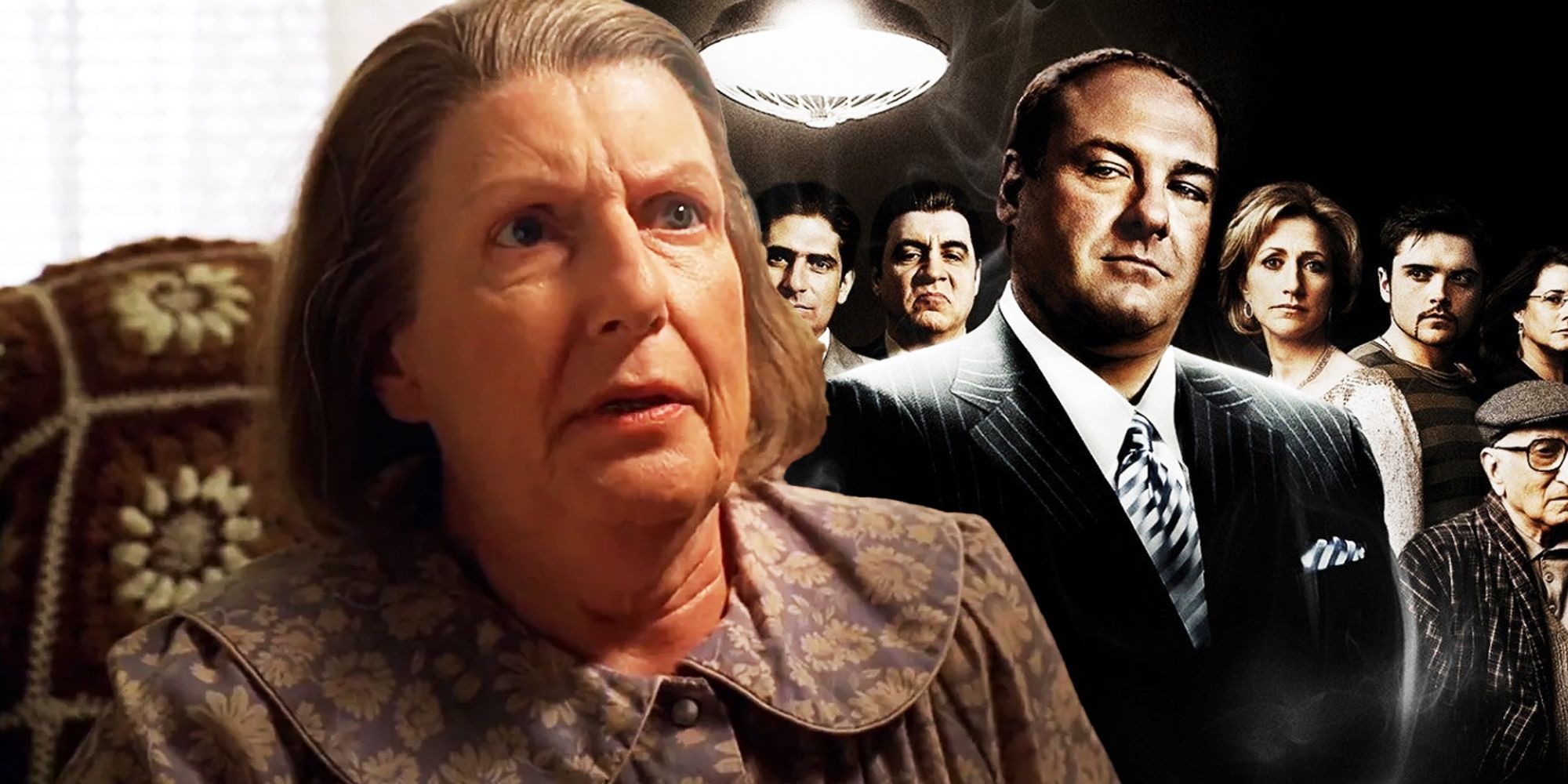
The Sopranos Shock: You Won't Believe Why Tony's Mother Is CGI in Season 3!

Livia's uncanny portrayal in The Sopranos Season 3 raises intriguing questions about the use of CGI Explore the controversy surrounding Tony Soprano's mother and discover her significance in the upcoming film, Many Saints of Newark
The Sopranos had a peculiar and unforgettable moment in season 3 involving a CGI version of Livia Soprano (Nancy Marchand), leaving viewers wondering why showrunner David Chase chose to include this scene. Sadly, Marchand passed away during the show's production, resulting in the offscreen death of her character, which greatly affected Tony (James Gandolfini). While numerous characters met their demise in The Sopranos, the loss of Tony Soprano's mother had the most profound impact on him. The exploration of their relationship continues in the Sopranos prequel film, The Many Saints of Newark, shedding light on the origins of the issues Tony had with his mother that defined the series.
Marchand's onscreen appearance in The Sopranos season 3 was limited to a single scene, utilizing CGI. In this scene, Tony confronts his mother, warning her not to incriminate him to the FBI. The conversation escalates into an argument regarding Livia's refusal to fill out the journals his wife Carmela Soprano (Edie Falco) had bought for her 20 years ago. These journals were meant for Livia to share her life experiences with her grandchildren. The underlying message of the scene is evident: Tony is enraged by his mother's maternal neglect. Ultimately, the CGI representation of Tony Soprano's mother was necessary because their story was not yet concluded.
Why The Sopranos Used CGI For Livia In Season 3
Marchand's unfortunate passing in 2000, during the production of seasons 2 and 3, led to Marchand's character being replaced with CGI. Rather than finding a new actress, Chase decided to abandon his plans for the character and instead chose to end her story by using CGI to create one final scene between her and Tony. This involved superimposing Livia's face onto another actress's body and incorporating unused footage from previous seasons. The result, understandably, was unsettling. Keep in mind that in 2001, the CGI technology used to de-age Luke Skywalker and young Eleven in Stranger Things season 4 was still far from perfected. The showrunners had to work with the available technology to give Tony Soprano's mother a fitting final scene.
In a 2001 interview with the Chicago Tribune, Chase explained that he included this scene because he believed it was necessary for the story as a whole: "I thought that was needed to have that on the table in that story. Not just have to go back to what had happened in the past." Tony Soprano's complex and conflicting feelings towards his mother played a crucial role in shaping his character and understanding his motivations.
Why Livia's Scene In The Sopranos Season 3 Was Perfect
Chase contends that Livia, Tony Soprano's mother, displayed not only a lack of support and emotional distance, but also a self-absorbed mindset when directly confronted about these matters. The episode effectively addresses any remaining doubts surrounding whether she harbored any remorse or underwent any sort of redemption before her demise. In support of his argument, Chase asserts that he deemed it essential to shed light on the broader narrative— a narrative that delves into Tony's escalating familial conflicts and increasingly sociopathic behavior.
The utilization of CGI to showcase the late actor adds an intriguing thematic element - it enhances Tony's personal sentiments towards his mother. Livia is portrayed as a disturbing figure, almost resembling a human but not quite, reflecting the depth of her cruelty towards her son. This intensifies Tony Soprano's unresolved issues with his mother, adding further significance. While there are indications of Livia Soprano possibly suffering from dementia, it is unquestionable that she is simply a malevolent individual.
In The Sopranos season 3, Tony Soprano experiences a deep betrayal from his mother, Livia. She repeatedly hurts him and refuses his love, leaving Tony confused and feeling undeserving of such treatment. In Tony's eyes, Livia has transformed into a mere imitation of herself, a haunting reminder of their toxic past. This is evident in Tony's reaction to Livia's death, as he fuels his self-hatred by convincing himself that he never loved her enough and that he was never deserving of his own mother's love.
The origins of Tony's self-loathing are revealed in The Many Saints of Newark, where it is uncovered that both Tony's father and mother were neglectful parents to him. Consequently, Tony seeks guidance from his "uncle" Dickie Moltisanti. Even though Dickie's death strengthens Tony's determination to prioritize his family, Livia's passing pushes him further into turmoil. Similar to the pinkie swear between Dickie and Tony at Dickie's funeral, Livia's final moments depicted through crude CGI align with the subtle magic realism that exists within the Sopranos universe.
Although the notorious scene in season 3 of The Sopranos is often criticized for its subpar CGI, it ironically served a purpose by capturing the uncanny valley effect, which actually aligned with the show's intended message. Tony and Livia's complicated relationship was skillfully portrayed by the late Marchand and Gandolfini, showcasing their undeniable talent and contributing to The Sopranos' status as one of the greatest dramas of all time.
Was The CGI Tony Soprano Mom Crossing A Line?
The utilization of the Livia Sopranos CGI solution may have been among the limited choices the show had to conclude this Sopranos narrative without Nancy Marchand. However, as the practice of generating a performance from a deceased actor becomes more frequent, there are ongoing ethical concerns. One particularly controversial instance was the creation of a CGI version of Peter Cushing to portray Grand Moff Tarkin in Rogue One: A Star Wars Story. Another actor's voice was employed to fashion an entirely new portrayal that Cushing himself did not partake in.
Who Is Tony Soprano's Mother In Many Saints Of Newark?
Rogue One and The Sopranos approached a significant difference in their treatment of characters. Instead of replacing or introducing a new character, Rogue One brought back Tarkin to evoke nostalgic sentiments among fans. In contrast, The Sopranos felt compelled to conclude Livia's storyline, perhaps as a way to pay homage to Nancy Marchand's integral role in the series. However, it cannot be ignored that Marchand's performance was synthetically created without her consent, raising concerns about actors' rights in the face of the growing prevalence of deepfake technology. This poses a complex question regarding whether The Sopranos crossed a line in their pursuit of advancing the narrative.
Vera Farmiga, who portrays Livia Soprano in The Many Saints of Newark, serves as a fitting reminder of the lasting impact Livia has had on Tony's character. In The Sopranos, Tony's actions often mirror his mother's domineering presence, as noted by his psychiatrist, Dr. Melfi, who once suggested – much to Tony's disgust – that he gravitates towards women who resemble his mother.
The conversation was revived when viewers promptly noticed the remarkable likeness between the actress portraying Livia Soprano in Many Saints of Newark and Edie Falco, who famously portrayed Tony's wife Carmela in The Sopranos. In addition to her physical resemblance to Falco, Vera Farmiga effortlessly embraces the immense legacy of Marchand's iconic portrayal. Her exceptional performance breathes life into the untold stories of Tony's mother, which The Sopranos merely hinted at.
